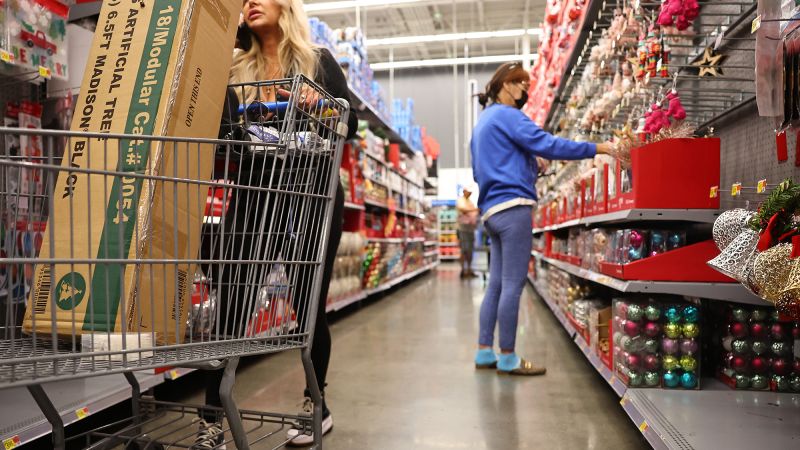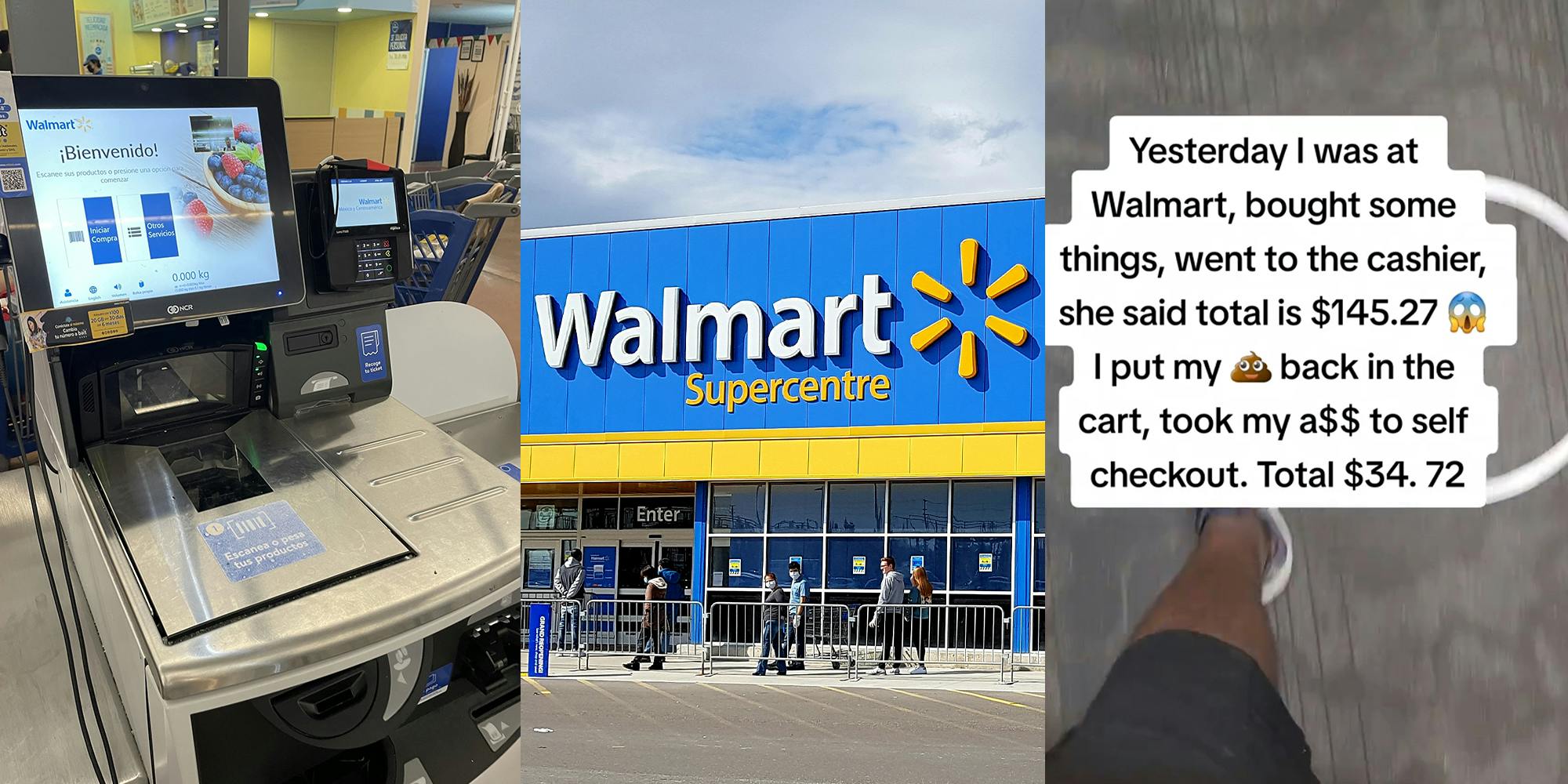








Mixed signals are emerging from the US retail sector as government data remains upbeat while Target CEO expresses concerns about the economy [41c19c4a]. Recent government data has shown positive signs for the retail industry, indicating a strong recovery and increased consumer spending [41c19c4a]. However, Target CEO has voiced concerns about the overall state of the economy, citing potential headwinds and uncertainties [41c19c4a]. These mixed signals highlight the complexity of the current economic landscape, with some indicators pointing towards a robust retail sector while others raise cautionary flags [41c19c4a]. The performance of the retail industry is closely tied to consumer sentiment, which plays a crucial role in driving spending patterns [41c19c4a]. As the US economy continues to recover from the impact of the pandemic, consumer sentiment will be a key factor to monitor in order to gauge the health of the retail sector [41c19c4a]. Target, one of the largest retailers in the US, serves as a bellwether for the industry and its CEO's concerns warrant attention [41c19c4a]. The company's outlook and performance can provide valuable insights into the broader trends and challenges faced by the retail sector [41c19c4a]. In a separate development, Tesco, a major UK retailer, has raised its profit guidance after a strong first half [9c678c87]. This positive outlook from Tesco further adds to the mixed signals in the retail sector, as it indicates a favorable performance for the company [9c678c87]. Furthermore, there have been other notable developments in the retail sector. SSE, a UK energy company, has lowered its profit guidance due to adverse weather conditions [6e8720b4]. Topps Tiles, a UK retailer specializing in tiles and flooring, has reported strong sales growth [6e8720b4]. Additionally, Ripple Labs' XRP cryptocurrency has been distinguished as not a security [6e8720b4]. These developments highlight the dynamic nature of the retail sector and the various factors that can impact its performance. Adverse weather conditions can have a significant impact on companies operating in the retail space, while regulatory decisions regarding cryptocurrencies can also influence market dynamics [6e8720b4]. As the retail industry navigates through the recovery phase, it will be important to closely monitor both government data, the sentiments expressed by industry leaders, and the performance of key retailers to gain a comprehensive understanding of the sector's trajectory [41c19c4a] [9c678c87] [6e8720b4]. Walmart's former CEO, Bill Simon, warns that a combination of economic and geopolitical issues, such as inflation, higher interest rates, and the Israel-Palestine conflict, could significantly impact consumer spending. Simon believes that these issues are causing consumers to be wary and hesitant to spend, marking the first time in a long time that there is a reason for consumers to pause. He also notes that retailers like Target and Amazon are feeling the pressure, with mounting issues affecting price points and the perception of deals. Despite the challenges, Simon believes that Walmart will fare better than its competitors due to its strong presence in the food business. In other news, Walmart recently announced that it will offer corporate positions to individuals without college degrees, recognizing the value of skills and experience. The company is also reevaluating its self-checkout systems in response to customer feedback. [e19b69a4]. Early predictions suggest lackluster overall spending this year, with growth barely outpacing higher prices. Deloitte forecasts holiday retail sales to grow between 3.5% to 4.6% this year, roughly half the 2022 growth rate of 7.6%. E-commerce sales are expected to grow between 10.3% and 12.8% year-over-year. Bain and Co. projects sales to grow 3% in November and December, reaching $915 billion. Gerald Storch, an adviser with more than 30 years of experience in top management and board seats for retailers, said the predictions indicate a sluggish holiday season for many retailers. The National Retail Federation (NRF) recently lowered its annual retail sales guidance, citing a slowing economy. Walmart President and CEO Doug McMillon had a more upbeat read on consumers, saying the job market, wage increases, and some pockets of disinflation have helped consumer spending. Major retailers like Macy's and Dick's Sporting Goods are planning to hire fewer seasonal workers this year compared to the past two years, indicating a cooling labor market. The surge in seasonal hiring in the previous years was driven by increased shopping after pandemic lockdowns. However, retailers have dropped incentives like signing or referral bonuses and steeper employee discounts. Searches for seasonal jobs have increased, but listed positions have decreased. Economists and consultants see the trends in hiring and pay as a sign that the red-hot labor market of the past couple of years has cooled. Inflation, eroding shoppers' budgets and confidence, and the drawdown of savings from pandemic relief programs may be contributing to the cautious approach in hiring, inventories, and sales projections. Walmart, however, plans to hire more seasonal workers this year and increase the average hourly wage for those jobs. The reduced seasonal hiring this year is also attributed to factors like evergreen requisitions and the early hiring of seasonal workers as early as August. The tightening labor market has shifted the power dynamics, with companies being more cautious in hiring and waiting to see how the fourth quarter pans out. [9a86841c]. Former Walmart CEO, Simon, criticizes Target and Amazon deals, stating that they are nothing to be 'proud' of. He highlights the impact of inflation on consumer spending, stating that rising costs will slow down spending despite low unemployment and increased wages. Simon also mentions the temporary drop in spending in 2020 due to the pandemic, but notes that spending rebounded in 2021. [e19b69a4]. A Walmart customer's TikTok video goes viral as he brags about not scanning items at self-checkout. Commenters have mixed opinions, with some blaming theft for Walmart store closures and others joking about their own experiences. Walmart's CEO warns that high theft rates could lead to store closures and price increases. The company has implemented anti-theft technology at self-checkout areas. [54749bfd]. Walmart CEO Doug McMillon predicts that food prices may start to deflate in the coming weeks and months. While food prices have been rising, certain staples like bacon, seafood, and eggs have seen price drops. McMillon's statement suggests that Walmart could enter a deflationary environment. The article highlights the potential impact of deflation on consumer behavior, employment, and the economy as a whole. It also mentions the challenges faced by central banks in stimulating economic growth during a period of deflation. The example of Japan's 'lost decade' is cited as a cautionary tale. The article includes stock market data and disclaimers related to market indices. [9fb87be6]. Former President Trump's actions and policies have had a negative impact on the retail industry. Retail theft has become politicized, with Trump making aggressive statements about handling theft. Trump's aversion to retail began with his controversial comments about Mexicans, which led to Macy's and Nordstrom removing Trump-related products from their stores. Despite initially charming the retail fashion industry, Trump's actions created havoc for retailers. While some retailers hoped for better tax environments and improved trade deals under a Trump administration, his decision to end USA participation in the Trans-Pacific Partnership (TPP) and his targeting of President Biden's Indo-Pacific Economic Framework (IPEF) have caused uncertainty. Trump also proposed adding 10% tariffs on all imports into the USA. His tariffs against China disrupted global supply chains and led to increased prices for apparel, footwear, and accessories. During the COVID-19 pandemic, some retailers were allowed to stay open while others had to close, leading to questions about essential and non-essential businesses. The article concludes that the Trumpian War on Retail is far from over and could continue to have negative consequences for the industry. [6d47d82b]. Donald Trump's presidential campaign has spent nearly $3,000 at Target since last year despite conservative calls to boycott the company over its LGBTQ+ Pride collection. The Trump campaign has spent $2,990 at Target since September, primarily on office supplies. Target faced a conservative backlash and announced in May 2023 that they would no longer sell some items of their Pride collection. Stock prices declined initially but have since increased by 7.46 percent. Trump has not called for a boycott of Target and has defended other companies facing conservative backlash. The spending reflects the Trump campaign's expenditures, not necessarily the former president himself. Target has confirmed that it will not carry Pride Month merchandise at all of its stores this spring after experiencing backlash and lower sales over its collection honoring LGBTQ+ communities. The decision on where to stock Pride-themed products will be based on guest insights and consumer research. The number of stores where the merchandise will not be available was not disclosed, but the full assortment will be available online. Last year, Target faced backlash and made changes to its LGBTQ+ merchandise nationwide ahead of Pride Month after intense customer reactions. Target's decision has been criticized by LGBTQ+ advocacy groups, who argue that it risks alienating LGBTQ+ individuals and allies. Target's move to scale back its presence of Pride merchandise for this year is in line with CEO Brian Cornell's previous statement that the company would be more thoughtful about merchandise decisions for heritage months that celebrate the achievements of marginalized groups. [9ec069b7]. Gee's Bend quilts, a unique Black American quilting tradition, have become popularized and collides with corporate America through a limited-edition collection launched by Target. The collection, inspired by the quilts' designs, sold out in many stores. However, the five Gee's Bend quilters who contributed to the collection received a flat rate for their work instead of pay proportionate to Target's sales. This one-off partnership with Target benefits only a small number of people and raises questions about meaningful change for the marginalized community as a whole. The commodification of Gee's Bend quilts has a history of problematic financial arrangements, disrupting the Quilting Bee's price-sharing structure. The Target collection was mass-produced from new fabrics in factories overseas, contrasting with the community's quilting practice of repurposing fabric. While the collection brings visibility, it hasn't necessarily translated into economic gains for the Gee's Bend community, which still faces economic challenges and needs revitalization. The collaboration with Target is seen as a way to make the designs accessible to a wider audience, but it also raises the challenge of preserving authenticity while reaching a broader market. Ikea is launching a new textiles collection called Tyg, designed for creative types with limited budgets. The collection features 20 patterns designed by 13 designers and reflects Scandinavian modern design. It includes pre-cut fabrics in various motifs and colors. The Tyg collection will be available in select Ikea markets starting in July, with 16 long-term patterns available for 24 months and 4 additional patterns released in the second half of 2024. Marie Olsson, Range Area Manager for Home Textiles & Rugs at Ikea, emphasized the company's long-standing heritage of bold expressions in patterns and textiles. [57ce9480]